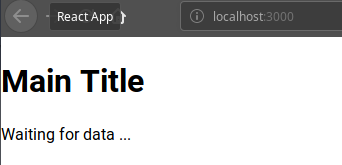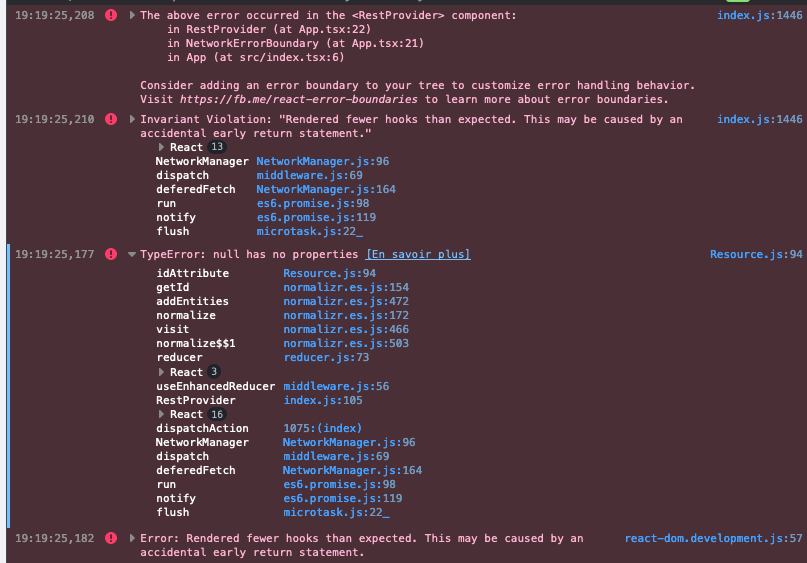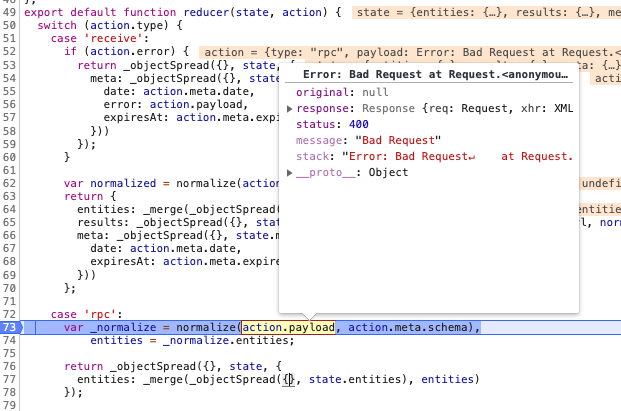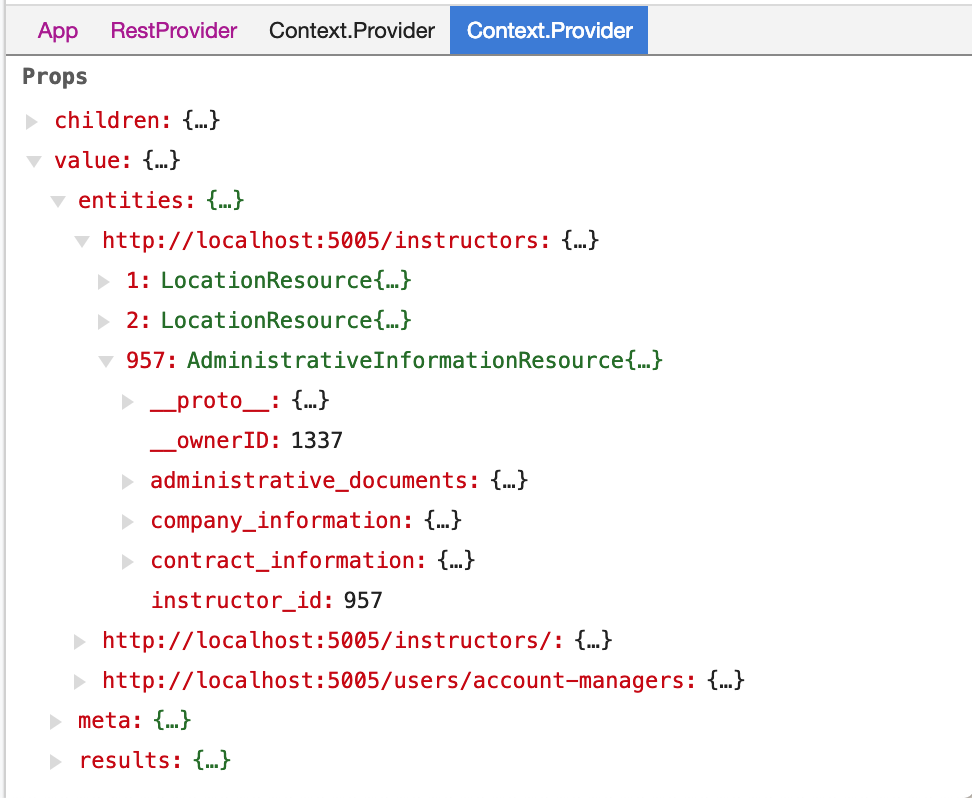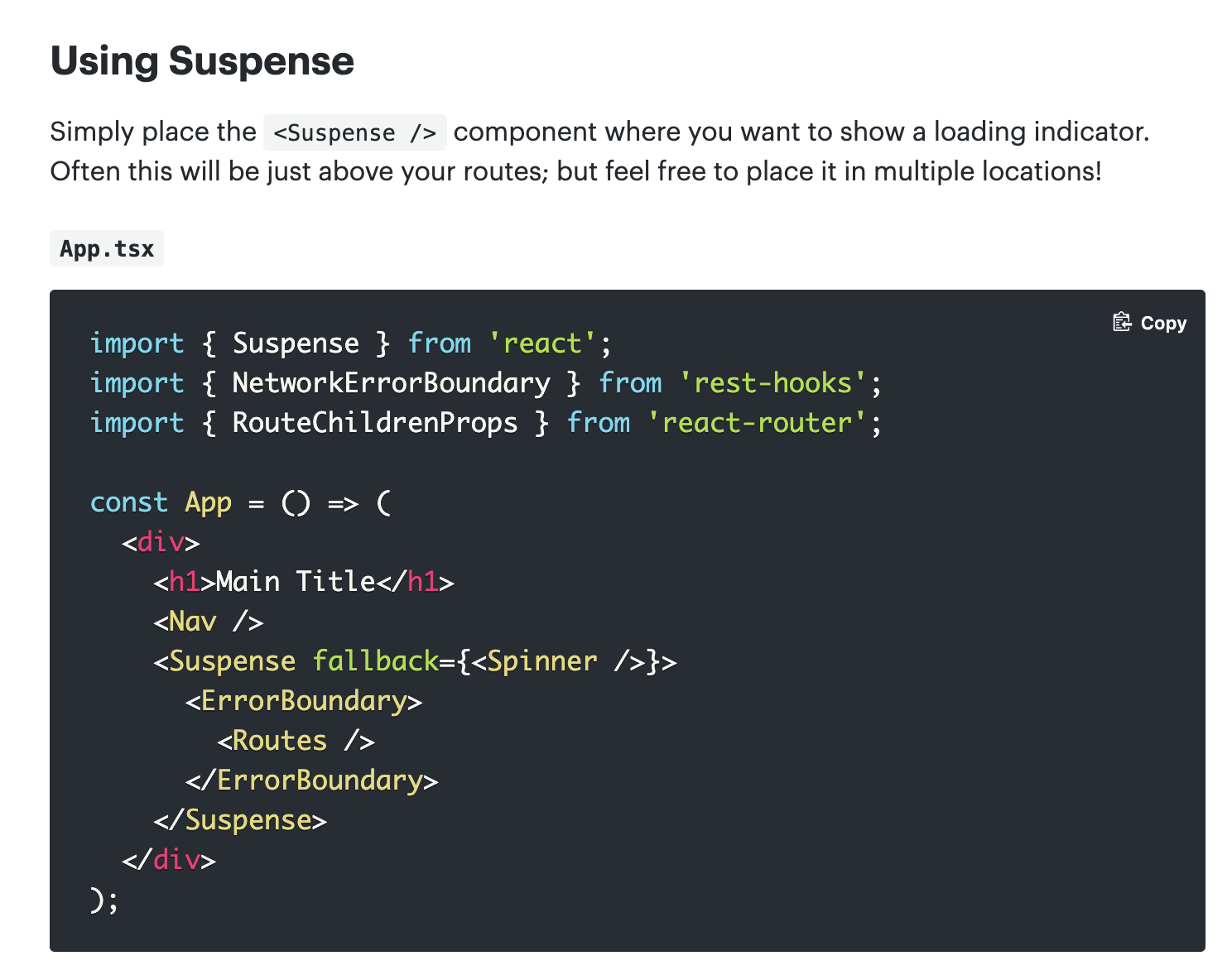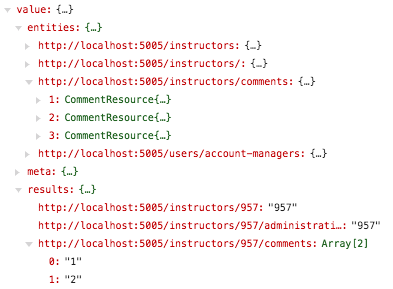Define your async methods. Use them synchronously in React. Instantly mutate the data and automatically update all usages.
For REST, GraphQL, Websockets+SSE and more
🌎 Website
npm install --save @data-client/react @data-client/rest @data-client/test @data-client/hooksFor more details, see the Installation docs page.
Simple TypeScript definition
class User extends Entity {
id = '';
username = '';
pk() {
return this.id;
}
}
class Article extends Entity {
id = '';
title = '';
body = '';
author = User.fromJS();
createdAt = Temporal.Instant.fromEpochSeconds(0);
pk() {
return this.id;
}
static schema = {
author: User,
createdAt: Temporal.Instant.from,
};
}Create collection of API Endpoints
const UserResource = createResource({
path: '/users/:id',
schema: User,
optimistic: true,
});
const ArticleResource = createResource({
path: '/articles/:id',
schema: Article,
searchParams: {} as { author?: string },
optimistic: true,
paginationField: 'cursor',
});One line data binding
const article = useSuspense(ArticleResource.get, { id });
return (
<article>
<h2>
{article.title} by {article.author.username}
</h2>
<p>{article.body}</p>
</article>
);const ctrl = useController();
return (
<CreateProfileForm
onSubmit={data => ctrl.fetch(UserResource.getList.push, { id }, data)}
/>
<ProfileForm
onSubmit={data => ctrl.fetch(UserResource.update, { id }, data)}
/>
<button onClick={() => ctrl.fetch(UserResource.delete, { id })}>Delete</button>
);const price = useLive(PriceResource.get, { symbol });
return price.value;const ctrl = useController();
ctrl.expireAll(ArticleResource.getList);
ctrl.invalidate(ArticleResource.get, { id });
ctrl.invalidateAll(ArticleResource.getList);
ctrl.setResponse(ArticleResource.get, { id }, articleData);
ctrl.fetch(ArticleResource.get, { id });const queryTotalVotes = new schema.Query(
new schema.All(Post),
(posts, { userId } = {}) => {
if (userId !== undefined)
posts = posts.filter(post => post.userId === userId);
return posts.reduce((total, post) => total + post.votes, 0);
},
);
const totalVotes = useQuery(queryTotalVotes);
const totalVotesForUser = useQuery(queryTotalVotes, { userId });class LoggingManager implements Manager {
getMiddleware = (): Middleware => controller => next => async action => {
console.log('before', action, controller.getState());
await next(action);
console.log('after', action, controller.getState());
};
cleanup() {}
}const fixtures = [
{
endpoint: ArticleResource.getList,
args: [{ maxResults: 10 }] as const,
response: [
{
id: '5',
title: 'first post',
body: 'have a merry christmas',
author: { id: '10', username: 'bob' },
createdAt: new Date(0).toISOString(),
},
{
id: '532',
title: 'second post',
body: 'never again',
author: { id: '10', username: 'bob' },
createdAt: new Date(0).toISOString(),
},
],
},
{
endpoint: ArticleResource.update,
response: ({ id }, body) => ({
...body,
id,
}),
},
];
const Story = () => (
<MockResolver fixtures={options[result]}>
<ArticleList maxResults={10} />
</MockResolver>
);For the small price of 9kb gziped. 🏁Get started now
-
Strong Typescript inference
- 🛌 React Suspense support
- 🧵 React 18 Concurrent mode compatible
- 💦 Partial Hydration Server Side Rendering
- 🎣 Declarative API
- 📝 Composition over configuration
- 💰 Normalized caching
- 💥 Tiny bundle footprint
- 🛑 Automatic overfetching elimination
- ✨ Optimistic updates
- 🧘 Flexible to fit any API design (one size fits all)
- 🔧 Debugging and inspection via browser extension
- 🌳 Tree-shakable (only use what you need)
- 🔁 Subscriptions
- ♻️ Optional redux integration
- 📙 Storybook mocking
- 📱 React Native support
- ⚛️ NextJS support
- 🚯 Declarative cache lifetime policy
- 🧅 Composable middlewares
- 💽 Global data consistency guarantees
- 🏇 Automatic race condition elimination
- 👯 Global referential equality guarantees
- Rendering: useSuspense(), useLive(), useCache(), useDLE(), useQuery()
- Event handling: useController() returns Controller
- Components: <CacheProvider/>, <AsyncBoundary/>, <NetworkErrorBoundary/>, <MockResolver/>
- Data Mocking: Fixture, Interceptor, renderDataClient()
- Middleware: LogoutManager, NetworkManager, SubscriptionManager, PollingSubscription, DevToolsManager
- Networking definition
- Data model







